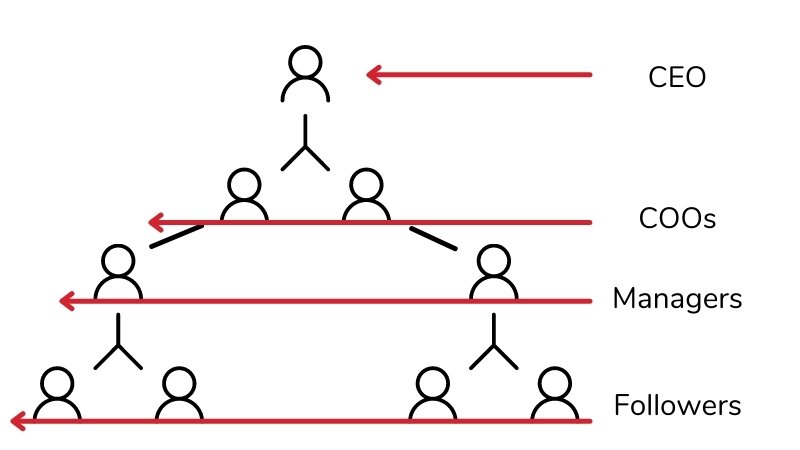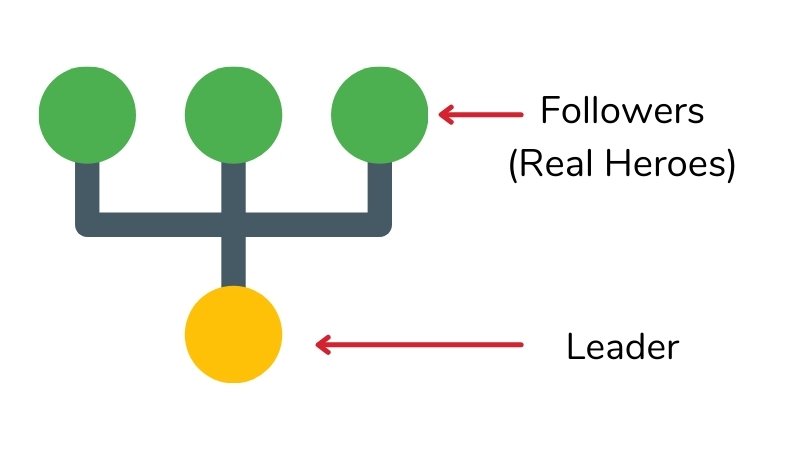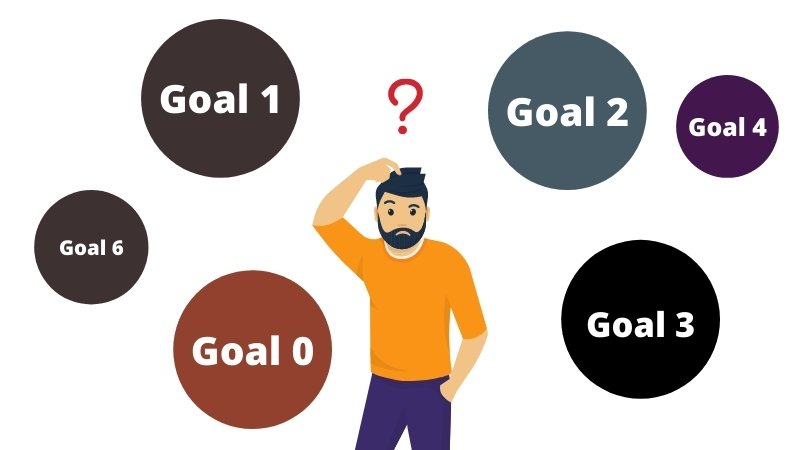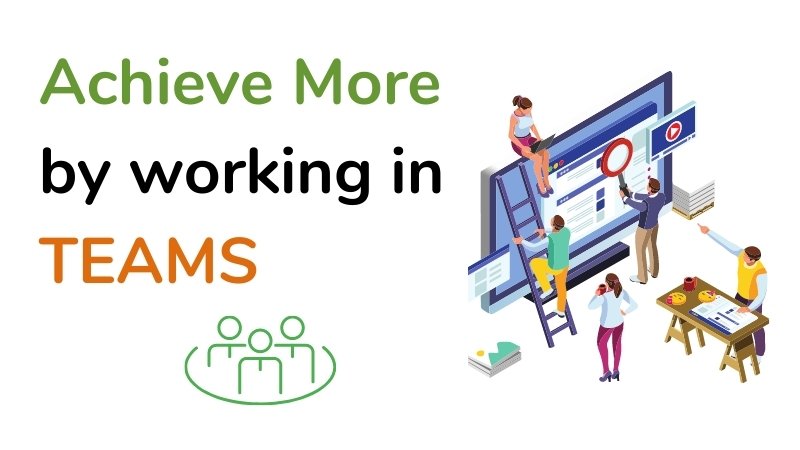In The Habit Of Winning Summary by Prakash Iyer, you’ll learn how to unleash the winner inside you by developing your mindset. This book has many interesting stories that inspire you to achieve extraordinary goals.
Who should read this book summary?
[amazon box=”0143420860″ template=”horizontal”]
- Anyone who wants to be a winner in life and achieve extraordinary goals.
- Youngsters who want to become a leader in any organization.
- Artists who want to become a champion in their fields.
- Professionals who want to become more efficient.

Prakash Iyer is a bestselling author, motivational speaker, and leadership coach.
In short, he knows a lot about leadership and life.
Learn more about the author here.
The Habit Of Winning Summary (PDF)
In this summary, I’ll share all the key lessons or insights that I learned from Prakash Iyer’s book The Habit Of Winning.
And as always, this summary will shake something inside you and help you grow.
So without wasting any time, let’s dive right in!
The people at the bottom of the hierarchy of any organization are the real heroes
We think that people at the top of the hierarchy are real heroes.
Like this:

That’s not the whole picture.
The people at the bottom of the hierarchy are the real determiners of whether an organization succeeds.
People at the top are the strategy makers. They manage people.
But results come when people at the bottom take action.
Strategies alone don’t do anything.
If you are a manager, think about the person’s mindset who deals with your customers.
Just think about it for a moment.
Ask yourself:
What do people at the bottom think while performing their roles?
Are they excited about their job?
Do they feel that they make a significant contribution?
Many people at the top think that all these things don’t matter as long as the people at the bottom are getting the job done.
That’s the wrong mindset.
Picture this:
Two people are trying to pass a challenging exam. One thinks that he will get rank 1. While the other thinks that as long as he passes the exam, he’ll be fine.
Who do you think would excel?
Obviously, the person who wishes to achieve the best rank will excel.
Now, what you can do is:
Turn the hierarchy of the organization upside down and think.

I’m not saying that you turn managers into workers and workers into managers.
Just shift your mindset.
Think about making your employees feel like they are the real heroes who move the organization.
Imagine the energy with which your employees will work then.
Most people at the top never think this way.
As a result, they limit the potential of their team. They stand in their own way.
By giving importance to the people and acknowledging them for their hard work, you’ll boost the people’s morale.
And people will return the favor by giving their best.
Consequently, the entire organization will grow fast.
Never try to achieve too many goals at the same time

It’s funny!
The author tries to compare our goals with rabbits.
He says that rabbits are like goals.
If you try to chase all of them at once, you’ll catch none.
Yet, most people make this mistake every day.
Do you make this mistake too? (Let me know in the comments)
What to do instead?
Set one clear goal.
And focus on that one goal alone.
Don’t run after shiny objects. Stay focused.
Chances are, you might fail sometimes. Don’t give up!
Stick to your goals.
You might think, “What if you realize later that the goal isn’t worth chasing?”
That’s why you must choose the right goals before starting running after them.
It’s like running a race, winning it, and then realizing that you were running after the wrong prize all this time. You didn’t need it in the first place.
This perfectly applies to our careers.
Many people choose the wrong career options falling into the same trap.
They choose what looks shiny at that moment.
Later, they realize that they are building the wrong career.
You don’t have to be in that situation.
Here is what you have to do:
You have to be smart right from the beginning.
Pick the right goal. (That’s your rabbit)
Once you are sure that you’ve chosen to run after the right rabbit, focus on chasing that.
Don’t get distracted by other rabbits.
Stay fixated on your rabbit until you catch it.
If you fail to catch it once, try using a different approach again.
But don’t give up.
You’ll catch your rabbit if you use the proper methods and don’t lose focus.
Have patience!
Have a champion’s mindset and focus on your strengths

What does a champion’s mindset look like?
Let’s dig deeper.
Tell me this:
How many champions do you see every day?
Very few, right?
The reason is there are only a few champions in this world.
Most people don’t have the mindset of a champion.
The author talks about how many people broke the 4-minute mile record after Roger Bannister broke it.
Earlier, people thought it was impossible to complete a mile in less than 4 minutes.
But Roger broke it anyway.
That’s the champion mindset.
He pushed through his limits and eventually broke the record.
The question is:
Was the record impossible to break, or did people make it so?
It was hard. But it wasn’t impossible.
Because if it were impossible, nobody would have broken it.
From this story, we can infer that most of our limitations exist in our minds.
People with the champion mindset don’t make excuses.
They focus on their strengths and don’t let their thoughts get in their way.
What you can do is:
Make a list of your limiting beliefs that hold you back from achieving your dreams.
And destroy them one by one with the champion’s mindset.
Ignore those who don’t believe in you
If Roger Bannister had listened to his critics, he never would have broken the 4-minute mile record.
If Tyrone had listened to his critics, he never would have become successful at NBA.
So did they all turn a blind eye to their critics? Nope!
They just didn’t give them importance.
They ignored the pessimists around them.
The point is:
We all have strengths and weaknesses. But how we use them makes a lot of difference.
The author shares the story of two pots.
One was perfect, and the other was cracked.
So the man who made them used the cracked pot to water the flowers.
That’s the mindset you need.
It doesn’t matter whether you are perfect or not. Nobody is perfect in reality.
So we need to find our strengths and put our unique talents to good use.
If a critic highlights your weakness, then sure, work on improving. But don’t get stuck counting your shortcomings.
It’s best to adapt to what you are already good at and focus more on that.
Remember:
Criticism can be both good and bad. So it depends on your mindset. It depends on how you handle it.
If you go by old self-help books, you should believe in yourself and not care about critics.
But the problem is:
If you don’t listen to people telling you about your mistakes, you won’t work on them and thus limit your growth.
The advice of ignoring your critics is often wrongly interpreted.
Make sure that you get it right.
Persevere and stand tall like a bamboo tree
You’ll find times when you feel stuck and not growing beyond a certain point.
It’s frustrating.
The author shares how a bamboo tree takes more than 60 months to grow above the surface.
Then in the next 90 days, it gets as tall as a building.

What happens all that time?
Growth.
Yes, growth is always there. It’s just invisible in the first 60 months.
The growth happens below the surface.
Think about the man who waters the bamboo tree for all those months.
Imagine if he stops after 30 months. Would the bamboo tree grow tall then? Nope.
Unfortunately, most people give up before seeing the results.
And it’s not entirely their fault. Some things take time.
How can you apply this concept in your life?
You must realize that if you stop watering your progress, it will stop.
Significant results may take time and require you to persevere.
But once you cross a certain threshold, the visible progress happens rapidly.
Again, it’s the quality of champions.
Just watch great athletes.
They practice a lot.
The practice is often dull. And that’s why people choose the easy way and get satisfied with small results.
Things would be easy if great results happened overnight.
But in life, most progress happens similarly to a bamboo tree’s growth. They have their own pace.
If you have a champion’s mindset, you’ll keep working with patience.
And eventually, stand tall.
You don’t have to expect 100% growth.
Even if you manage to grow yourself daily just by 1%, you’ll be far ahead of most people who never put effort into developing their skills.
There is a thing called compounding.
What happens in the case of a bamboo tree is: The growth compounds after a certain period.
The same happens with us too.
As we keep upgrading ourselves, our results compound over time.
Sometimes, inaction is better than action
Action isn’t always good.
Yes, it’s true.
Sometimes, inaction leads to progress.
To explain this, the author talks about how a goalkeeper jumps during a penalty when it’s been found that he has more luck by standing still.

Why does this happen?
The author says that we have a bias for action.
And it’s not that hard to understand.
People see inaction as bad.
In other words, the action is associated with growth.
For example:
If you have an exam tomorrow and are not studying, you’ll be called reckless by most people.
Often people think that studying more is the key to higher marks.
They forget that studying less but effectively leads to higher marks. Not what they think.
So what is right: action or inaction?
Both. It depends.
If you have to save a penalty, maybe inaction is better for you.
But if you are stuck in life, maybe action is what you need.
Pro Tip: I’d suggest you don’t get stuck thinking about whether you should go for action or inaction. Just pick one that you believe is the best at any moment. You can only guess in most cases. Nobody knows!
Be cautious in times of abundance
Humans are such that they don’t value what they have in abundance.
Let’s talk about money.
Money is valuable when you have less of it, right?
Now imagine yourself as a billionaire.
Would you still look at the money the same way?
Would you care about a discount or a sale in a shop if you had millions of dollars in your bank account? Heck no.
We are conditioned to give more value to what is rare.
Otherwise, why would diamonds be so expensive?
The author tells how our spending habit changes when buying an expensive item in a shop.
Let’s say you are going to buy an expensive mobile worth $1000.
Would the $5 discount matter to you that much during that moment?
What if another shop gives you the same mobile with a $5 discount? Would you change a shop for a mere $5?
But still, $5 is $5.
It’s all in our heads.
Now imagine: What if you are buying a cheap product?
Then those $5 would seem significant.
Won’t they?
What can you learn from this?
Be cautious and aware of your mind.
Our minds sometimes try to trick us with our thoughts.
Stay close to the truth.
Ask yourself:
Am I thinking right?
Is there any bias in my thinking?
This will help you become aware of loopholes in your thinking and help you make the right decision at any moment.
You can achieve more by working in teams than being a lone ranger

It’s hard to take responsibility for other people.
And it’s scary to delegate our important task to another person.
What if the other person messes up?
So what do most people do: They do it themselves.
Doing something yourself isn’t a bad thing in itself.
The only problem is:
When you do everything yourself, you spend a lot of time.
But if you delegate those same tasks to someone else, you can save that time and put it to another use.
Visionary leaders build great teams that work harmoniously to achieve a common goal.
How can you become a great leader?
Read this: Developing The Leader Within You Summary
If you think of life as a sport, you’ll better understand what the author wants to tell.
For example:
In any team game, the secret to winning is to play strategically with all the team members.
Life is like that too.
If you master how to work with people, you’ll get better results at almost everything you do.
Leaders run this world, right?
And they don’t do everything themselves. They depend on other people.
Does this mean that you don’t have to do anything by yourself? Nope.
You can do so many things.
The key idea is to do a few things and delegate the rest.
Just make sure that you are spending time on the critical things.
You don’t have to deal with urgent and unimportant tasks.
Learn to delegate.
“Scorpions are scorpions. They sting.”
Pay attention now:
It’s good to be good.
But remember: If you are helping a scorpion and expecting the same, you’re making a mistake.
Unfortunately, there are people like that.
No matter how much you help them, they sting you like a scorpion.
The knowledge of this fact will help you guard yourself against the dangers.
It makes much more sense when you are building a team of people.
Not all people will help you with your goals.
Some are even dangerous to your goals, TBH.
Don’t assume that everyone believes in your vision.
The last thing you need in your team is a scorpion. Ensure that you know the true nature of the people in your team.
The Key Takeaways from The Habit Of Winning By Prakash Iyer
Let’s recap the key lessons from this book summary:
- The people at the bottom of any organization’s hierarchy are the real heroes.
- Never try to achieve too many goals at the same time.
- Have a champion’s mindset and focus on your strengths.
- Ignore those who don’t believe in you.
- Persevere and stand tall like a bamboo tree.
- Be cautious in times of abundance.
- Sometimes, inaction is better than action.
- You can achieve more by working in teams than being a lone ranger.
- “Scorpions are scorpions. They sting.”
The Habit Of Winning Quotes
Here are some of my favorite quotes by Prakash Iyer:
“It’s not the color of balloon that matters. It’s what is inside it that makes it rise.”
“If you only do what you have always done, you’ll only get what you’ve always got!”
“Don’t try to catch all the rabbits at once, you may end up with none.”
The Habit Of Winning Book Review
[amazon box=”0143420860″ template=”horizontal”]
I love books like this one.
It has short, straightforward chapters yet effectively conveys the powerful message through stories.
It felt as if the author is fond of Cricket as he has taken so many cricketers’ names in the stories throughout this book.
This book is more on the motivational side.
Most ideas are generic.
For example:
- Believe in yourself…
- Set goals…
- Have patience…
- Stay determined…
- Don’t lose focus…
- Success takes time…
These are overused self-help ideas. And feel like a drag while reading.
The style of writing is simple, and the ideas are organized well.
The only thing that I wish this book had is Depth.
The author scratches the surface-level ideas, but he hardly goes deeper into them.
Don’t expect that you will achieve anything after reading this book.
The only thing you get from this book is the mindset.
=>Purchase this book from Amazon
Who would I recommend this book?
I would recommend this book to everyone.
Even kids would love this book.
The reason is:
Stories!
Stories help us relate.
And this book has some of the shortest yet finest stories I’ve read for a while.
Due to movie-like stories, this book holds the reader’s interest.
I also recommend that corporate people read this book as it talks about building teams.
Prakash Iyer is well known for giving presentations on leadership.
If you liked this, you may also like
- Book Summary: Developing The Leader Within You by John Maxwell
- Book Summary: Attitude Is Everything by Jeff Keller
- Book Summary: Leaders Eat Last by Simon Sinek
- Book Summary: Chanakya Neeti
- Book Summary: Who Will Cry When You Die by Robin Sharma
Now it’s your turn
I hope you enjoyed reading this summary and got a ton of value.
Now you tell me:
Which lesson was the “Aha” moment for you?
Which one do you think can change your life?
Let me know in the comments below.
And as always, SHARE this with others so that they can also benefit from it.
Thanks in advance!
Thanks for reading this book summary and investing your time here.

Thank you Shami for your awesome 5-7 min summary, save so much Time ( which is valuable) yet getting the Vital and the Gist of the Book, Great Work, will share.
Hey, thanks for reading the summary Patrick. Glad you found it useful.